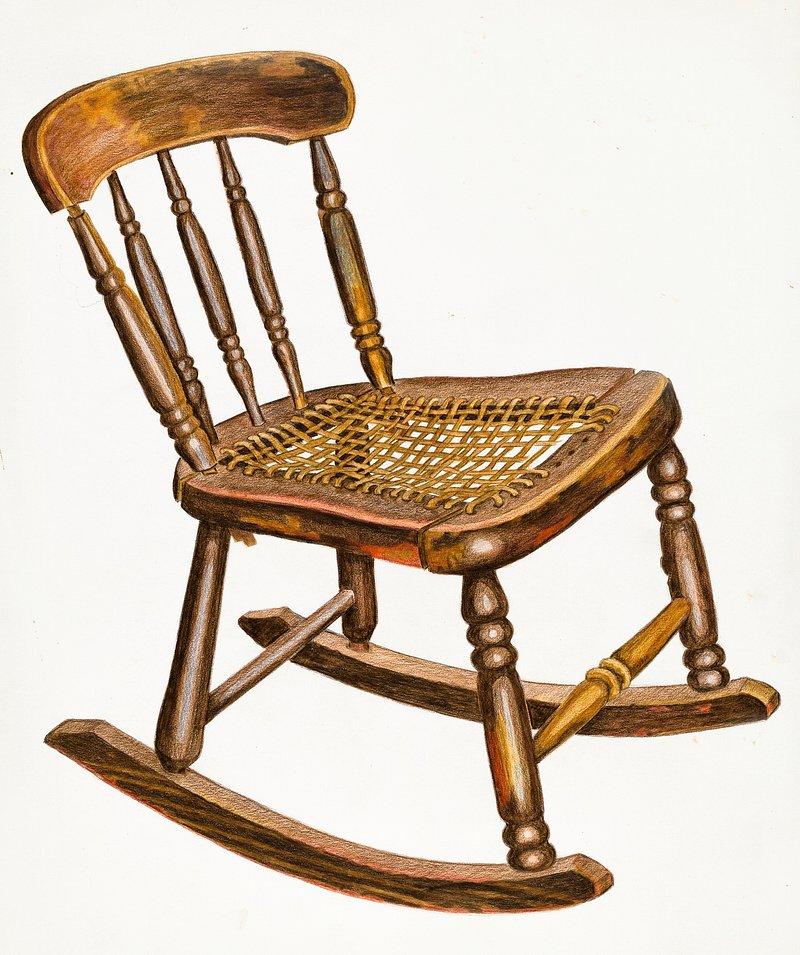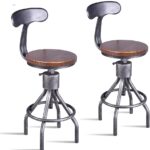In the realm of electric guitars, few instruments evoke as much reverence and passion as the vintage Gibson Les Paul. With its iconic body shape, rich tones, and storied history, this legendary axe has inspired generations of musicians, from rock legends to blues virtuosos. Each vintage model tells a tale, echoing the sounds of countless classic albums and legendary performances. As we explore the alluring world of vintage Gibson Les Pauls, we’ll delve into their craftsmanship, the cultural impact they’ve made, and what makes these guitars not just tools of the trade, but coveted treasures for collectors and players alike. Whether you’re a seasoned guitarist or a curious enthusiast, join us as we unravel the mystique behind these timeless instruments that continue to shape the landscape of music.
Exploring the Evolution of the Vintage Gibson Les Paul
The Gibson Les Paul has undergone a remarkable transformation since its inception in the early 1950s, becoming one of the most iconic electric guitars in history. Initially designed for jazz musicians, its features gradually evolved to cater to a broader audience, including rock and blues players. The early models, characterized by their single-cutaway body shape, double humbucker pickups, and rich mahogany construction, set the stage for a legacy of tonal excellence. As the music scene shifted, so too did the Les Paul, with notable changes emerging during the late 1960s and early 1970s, when it began to embrace a greater variety of finishes and neck profiles, allowing musicians to further personalize their sound.
By the time the ’60s rolled around, the Les Paul had become a staple in rock music, thanks in part to legendary guitarists like Jimmy Page and Eric Clapton. This period saw remarkable innovations, such as the introduction of the Lee Patrick O’Neill pickguard and the Slim Taper Neck, which provided easier playability. Below is a table that highlights some key features of different vintage models:Vintage Cole Haan HandbagsGulf Stream Vintage Cruiser For SaleVintage Rattan Furniture
| Model Year | Key Features | Notable Players |
|---|---|---|
| 1952 | Single cutaway, P90 pickups | Les Paul, Muddy Waters |
| 1958 | Double cutaway, humbucker pickups | Jimmy Page, Gary Moore |
| 1960 | Flat, beveled edges, larger neck | Eric Clapton, Peter Green |
Unpacking Iconic Features and Specifications
The vintage Gibson Les Paul is a testament to the artistry and craftsmanship that defined an era of music. Renowned for its solid body and distinctive tone, this guitar features a variety of specifications that have made it a favorite among musicians across generations. The choice of wood plays a pivotal role in its sound; the carved maple top combined with a mahogany body produces unmatched warmth and resonance. The iconic set neck construction not only enhances sustain but also allows for improved playability, making it an ideal instrument for solos and complex riffs.
In addition to its rich aesthetic appeal, the Les Paul is equipped with some of the most celebrated components in the guitar world. Its humbucking pickups, initially designed to reduce noise and interference, create a robust and full sound that has become synonymous with rock music. Other notable features include:
- 22 frets on a rosewood or ebony fingerboard for smooth playability
- Adjustable bridge for precise action and intonation
- Classic trapezoid inlays that enhance the aesthetics of the instrument
These specifications contribute to the overall character of the vintage Gibson Les Paul, ensuring that each guitar is not just an instrument but a piece of musical history.
The Art of Craftsmanship: What Makes These Guitars Stand Out
The allure of vintage Gibson Les Paul guitars lies in their unparalleled craftsmanship, which is characterized by a meticulous attention to detail and a deep understanding of materials. Each instrument is carved from high-quality woods, often featuring a stunning flame maple top that not only enhances visual appeal but also contributes to the rich tonal palette. The hand-selected mahogany body and neck provide a warmth and resonance that are hallmarks of the vintage sound. Every curve and angle is crafted with precision, ensuring that each guitar fits comfortably in the hands of the player, whether they are on stage or in the studio.
Furthermore, the iconic P-90 and humbucker pickups used in these guitars have become legendary, contributing distinct tonal characteristics that guitarists cherish. The electronics are expertly wired, allowing for a wide range of sound manipulation that can transition seamlessly between genres. Beyond functionality, these guitars are often adorned with intricately designed pickguards, binding, and inlays, showcasing the artistry involved in their creation. The combination of these elements results in instruments that not only deliver extraordinary sound but also possess a visually stunning presence that captivates musicians and collectors alike.
Navigating the Vintage Market: Tips for Savvy Buyers
When diving into the world of vintage Gibson Les Pauls, it’s essential to arm yourself with knowledge and an eye for detail. First and foremost, research is your best ally. Familiarize yourself with the various models, production years, and specifications that distinguish them. Pay close attention to factors such as:
- Year of manufacture: Vintage models span from the late 1950s to the early 1980s, with significant variations across decades.
- Pickups: Look for humbuckers, as they significantly affect sound quality.
- Features: Authentic nitrocellulose finishes, binding, and neck profiles can indicate a genuine vintage model.
In addition, having an experienced eye will help you assess the condition of the guitar. A well-maintained instrument with minimal wear can command a higher price but may be worth the investment. When evaluating a potential purchase, consider these aspects:
| Condition | Quality | Market Value |
| Mint | Exceptional | Highest |
| Excellent | Very Good | High |
| Good | Good | Moderate |
Lastly, don’t shy away from negotiating prices, especially considering the condition and authenticity of the piece. Smart buyers understand that every vintage instrument carries a story and that history influences value. With patience and diligence, you can find a vintage Gibson Les Paul that not only resonates with your musical style but also stands as a prized collectible.
Preservation and Care for Your Vintage Instrument
Owning a vintage Gibson Les Paul is not just about music; it’s about preserving a piece of history. To maintain its classic charm and sound quality, regular maintenance is essential. Start by cleaning the body with a soft, lint-free cloth to avoid scratches. Use specialized guitar polish that’s safe for lacquer finishes. Don’t forget to wipe down the strings after each use to extend their life and enhance playability. Additionally, store your instrument in a case with a humidity control system to prevent wood warping or cracking, and always keep it away from direct sunlight.
String and fret care is equally important for the longevity of your Les Paul. Consider the following tips for optimal maintenance:
- Change strings regularly based on usage and gauge preference.
- Monitor fret wear—frets can wear down over time, so consider a dressing if you notice significant grooves.
- Adjust the truss rod if you notice changes in neck relief; this ensures comfortable playability.
- Regularly check your pickups—they should be at the optimal height for maximum tone and sustain.
| Maintenance Task | Frequency |
|---|---|
| Clean body and strings | After each use |
| Change strings | Every 1-2 weeks |
| Check truss rod | Every few months |
| Inspect pickups | Quarterly |
The Impact of Vintage Les Pauls on Modern Music Genres
The enduring legacy of vintage Les Pauls has woven itself into the fabric of various music genres, shaping the soundscapes of rock, blues, jazz, and even metal. Artists and bands have consistently flocked to these iconic instruments, drawn by their unique tonal characteristics and rich historical significance. The combination of mahogany bodies, maple tops, and humbucking pickups provides a warmth and sustain that can’t easily be replicated, making these guitars a preferred choice for musicians seeking that classic sound. Many legendary recordings across decades owe their distinctiveness to the unmistakable voice of a vintage Les Paul, firmly establishing its place in the annals of music history.
The influence of these guitars can be seen in key artists and genres through the years. From the soulful riffs of blues legends like B.B. King to the shredding solos of rock giants such as Slash and Jimmy Page, the vintage Les Paul remains a symbol of musical excellence. Below is a brief overview of its impact across different styles:
| Genre | Iconic Artists | Characteristic Sound |
|---|---|---|
| Rock | Slash, Jimmy Page | Heavy, sustaining leads |
| Blues | B.B. King, Eric Clapton | Warm, expressive solos |
| Jazz | Wes Montgomery, Pat Metheny | Smooth, rich chords |
| Metal | James Hetfield, Zakk Wylde | Powerful, aggressive tones |
Q&A
Q&A: Exploring the Allure of Vintage Gibson Les Paul Guitars
Q1: What defines a vintage Gibson Les Paul guitar?
A1: A vintage Gibson Les Paul is typically defined by its age, craftsmanship, and tonal qualities. Generally, guitars made between the late 1950s to early 1970s are considered vintage. These instruments are revered not only for their historical significance but also for the unique sound characteristics imbued by the materials and techniques used during this era, such as hand-wound pickups and solid mahogany bodies.
Q2: What sets the vintage Les Paul apart from modern models?
A2: The distinction lies primarily in the construction and materials. Vintage models often feature Brazilian rosewood fingerboards, nitrocellulose finishes, and the original humbucker pickups, known for their warm, rich sound. Modern Les Pauls, while still high-quality instruments, tend to use different woods, production techniques, and finishes, which can affect the overall tone and aesthetic.
Q3: Why are vintage Gibson Les Paul guitars so sought after by collectors?
A3: Collectors are drawn to vintage Gibson Les Paul guitars for several reasons, including their rarity, desirability, and investment potential. Each vintage piece also carries a unique story and heritage, often associated with legendary musicians and iconic recordings. The combined allure of craftsmanship, sound, and history creates a perfect cocktail for any serious guitar enthusiast.
Q4: Can you describe the tonal characteristics of a vintage Les Paul?
A4: The tonal signature of a vintage Gibson Les Paul is often described as warm and full-bodied, with a balanced mix of sustain and clarity. The humbuckers provide a thick, creamy sound ideal for a variety of genres, from blues to rock. Players frequently note a pronounced midrange and a smooth treble response, making it a versatile choice for both rhythm and lead parts.
Q5: What should one consider when buying a vintage Les Paul?
A5: When shopping for a vintage Les Paul, prospective buyers should consider factors like the guitar’s provenance, condition, and authenticity. Look for original parts, verify the serial numbers, and examine the neck angle and frets for wear. Understanding market prices and trends is key, as well as having a trusted professional opinion—preferably from an experienced guitar technician or appraiser.
Q6: How does the vintage market impact the resale value of La Paul guitars?
A6: The vintage market greatly influences the resale value of Gibson Les Paul guitars. Prices can fluctuate based on factors like rarity, condition, and current trends in the music industry. Collectors often seek specific models associated with iconic artists, driving demand and value. However, it’s important to note that while many vintage guitars appreciate in value, proper care and documentation are essential to maintain their worth over time.
Q7: Are there any specific vintage Les Paul models that are particularly notable?
A7: Yes, certain models like the 1958, 1959, and 1960 Sunburst Les Pauls are legendary among collectors and players alike. The 1959 Les Paul, in particular, is often considered the Holy Grail of electric guitars due to its impeccable tone and playability, not to mention its connection with rock icons like Jimmy Page and Eric Clapton. Each of these models boasts unique features and specifications that contribute to their storied legacies.
Q8: How can someone learn to appreciate the nuances of a vintage Gibson Les Paul?
A8: Appreciation for a vintage Gibson Les Paul can often be cultivated through hands-on experience and education. Engaging with the guitar community, attending vintage guitar shows, and, preferably, playing various models can deepen one’s understanding of their unique qualities. Listening to recordings made with vintage Les Pauls can also highlight their distinctive sound and impact on music history, creating an emotional connection that enhances appreciation.
By delving into these elements, enthusiasts can not only enjoy the beauty of vintage Gibson Les Paul guitars but also contribute to preserving their legacy as timeless instruments in the world of music.
Concluding Remarks
As we conclude our journey through the rich history and enduring appeal of the vintage Gibson Les Paul, it’s clear that this iconic instrument is much more than just a guitar; it’s a cornerstone of music history, a symbol of craftsmanship, and a beloved companion for generations of musicians. Whether gracing the stage with legendary rock riffs or offering a warm, soulful tone in the hands of a blues master, the vintage Les Paul continues to resonate with players and collectors alike.
As you contemplate the legacy of this remarkable instrument, consider the stories it has to tell – stories of creative expression, timeless sound, and musical innovation. For those who seek authenticity and character in their musical endeavors, the vintage Gibson Les Paul stands as a testament to the golden age of guitar making. May your tribute to its lineage inspire your own musical journey, echoing the notes of the past while paving the way for future melodies. Thank you for joining us on this exploration of an enduring classic!


